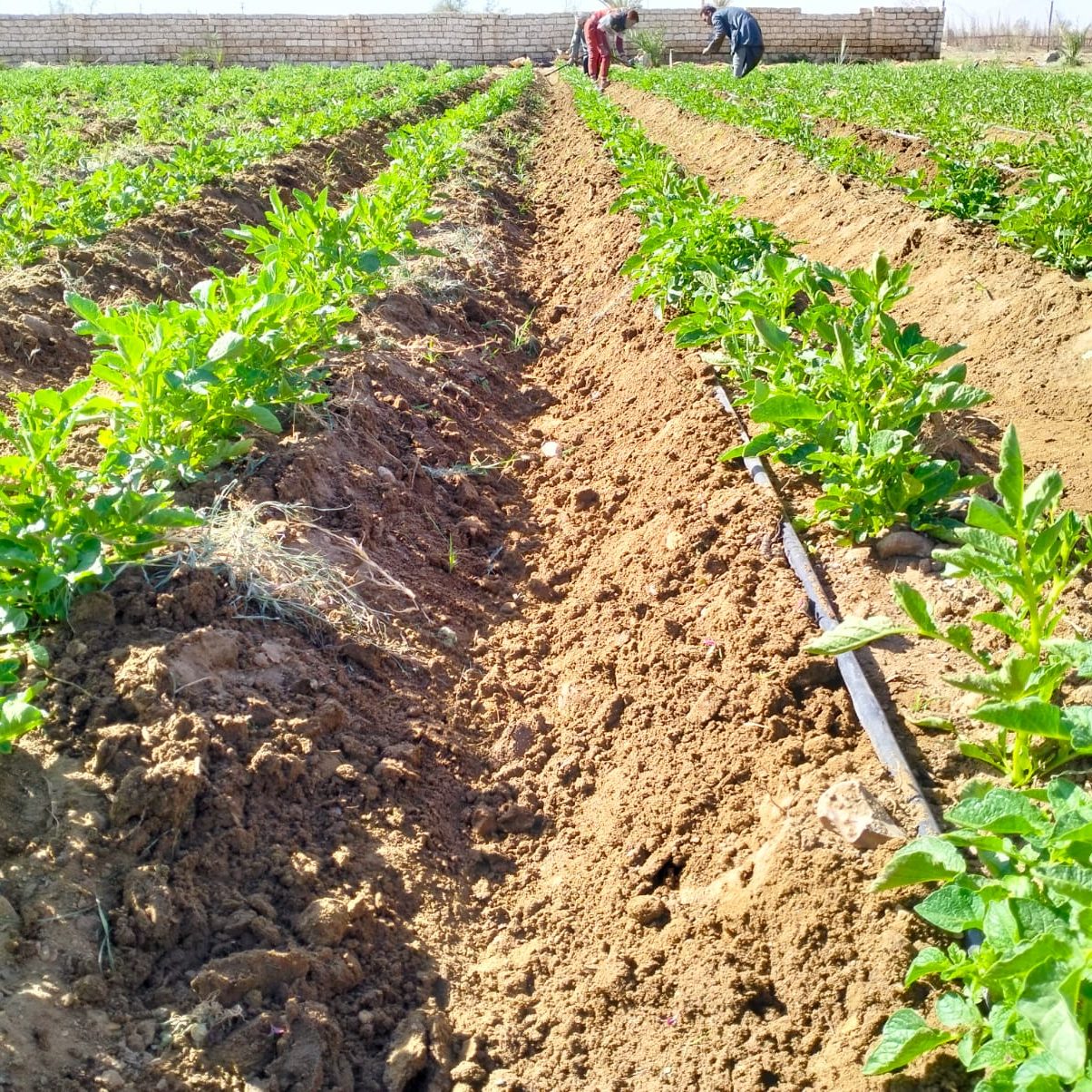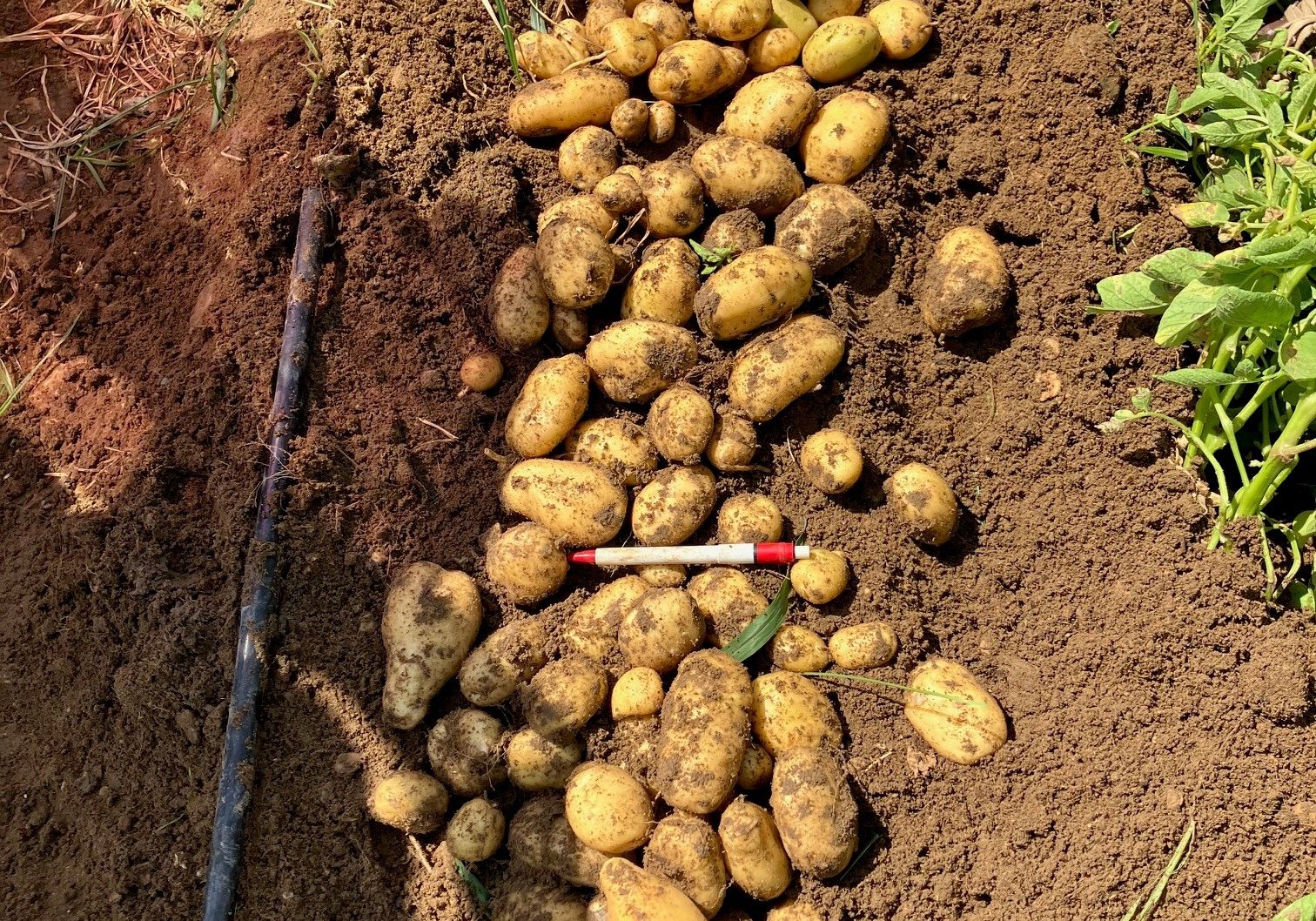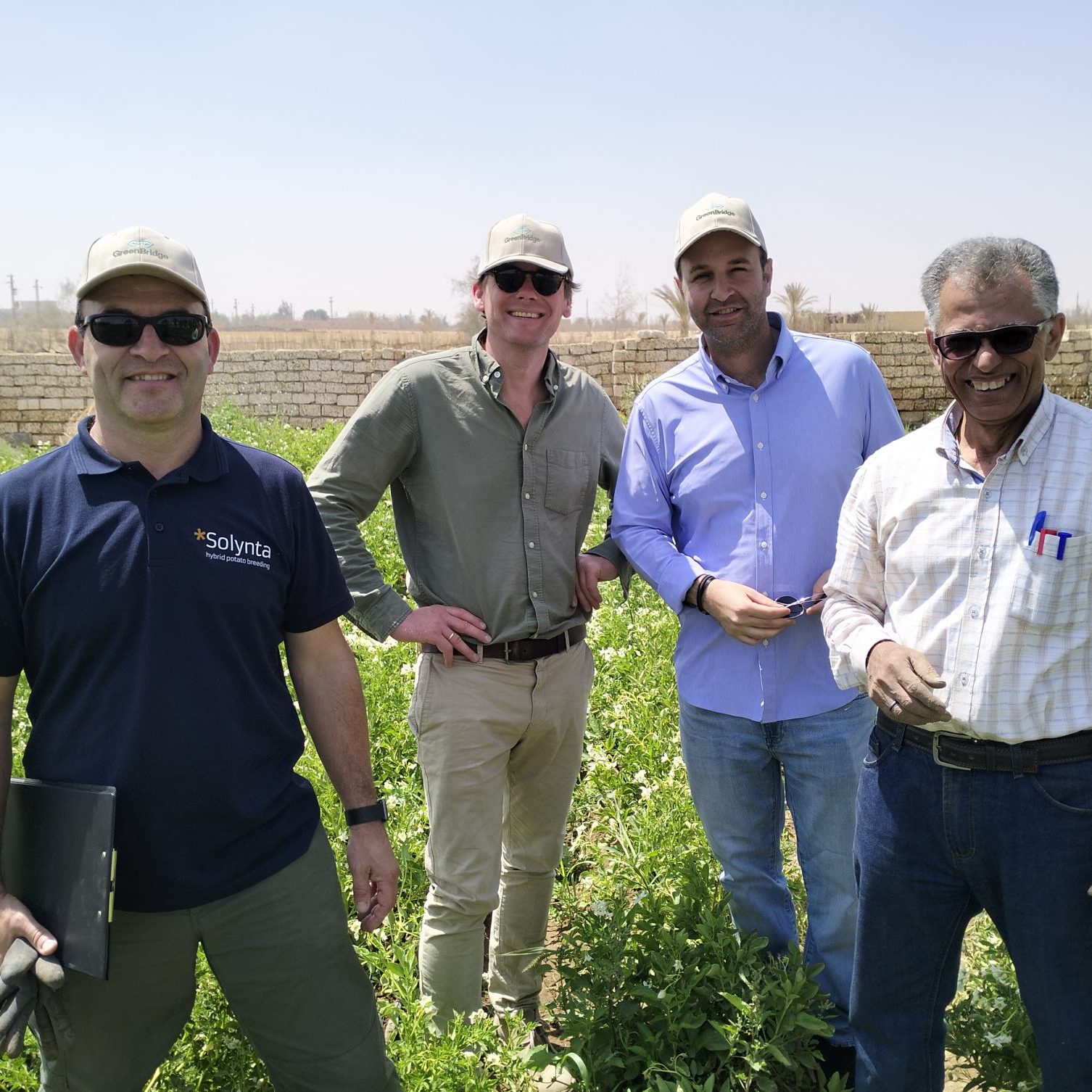The Netherlands
December 4, 2023
Egypt is gradually becoming one of the fastest growing exporters of potatoes. Many freshly harvested potatoes from this region are imported into the EU in the first months of the year. With a total export of 211.000 tons to the EU by Egypt in the first 4 months of 2023, the country accounts for a large portion of the total imports from non-EU countries, forming an interesting partner for the table market and potato processing industry. (Sources : source 1 and source 2)
In 2023, Solynta’s Business Development Manager Rian Stekelenburg met with Greenbridge Managing Director Omar Doughan for the second year in a row, to start a collaboration on growing potatoes from hybrid true potato Seed (HTPS) in Egypt. Greenbridge is interested in this way of growing potatoes because HTPS can play an essential role in reducing the enormous annual quantities of seed tuber-imports to Egypt. The disadvantages of the existing tuber-based system are the fluctuations in seed tuber quality and uncertainty on receiving the right quantity. 2023 in particular turned out to be a bad year for seed tuber importers. Due to weather conditions in the EU during the growing seasons, yields are low and tubers often not in the right size. Consequences are shortages of available seed tubers and a very high price. Hybrid true potato seed is a good alternative to the reliance on the volatile seed tuber trade in this region.




Located near El Minya, Egypt, plantlets were transplanted in the field. After around 120 days, the harvest was done, with a satisfying result of 40 tons/ha. “This is quite a promising result, considering that this was our first ever large trial involving growing potatoes from plantlets. Small plantlets require a little extra attention and care in the beginning of the growth cycle, but eventually, the result is beyond our expectations.”, said Omar Doughan.
Solynta Business Development Manager Rian emphasizes that this first variety grown in Egyptian soil, is just the start of a larger portfolio of potato varieties. “One of the big advantages of hybrid potato breeding is that we are able to breed new varieties within two to five years. This means that every year, we will be developing and testing even better yielding, more robust varieties. Also, targeted breeding is possible, depending on customer and geographic requirements. Eventually, we will have a large portfolio of robust varieties, suited to meet the high expectations of every market around the world and every climate zone. We are now at the start of an exciting path to introduce our innovative products and a new production system to the world.”, he stated.

Greenbridge will use a selection of the harvested tubers for their next potato growth cycle in the winter season. These G1 tubers are expected to give an even higher yield, as already shown in previous trials in other countries.
“We are excited to try this new potato growing system in Egypt. By growing potatoes from tiny true potato seeds, we can avoid seed tuber price fluctuations and low quality starting material. That’s a big advantage for farmers, and also allows the potato growing sector in Egypt to innovate and improve sustainable agricultural practices. We are especially interested in the future varieties, which will have enhanced resistances to diseases and pests. We are building our knowledge and experience with these hybrid potatoes now, so we are ready to scale up immediately as soon as the right variety is ready for the market.”, Omar continues. “We are eager to continue working with Solynta and gain experience with growing potatoes from hybrid true seeds, as this is a real game-changer for the potato industry and potato farming communities.”, he concludes.
Important prerequisites in Egypt potato farming are yield and tuber size and robustness to produce stable outputs under the harsh climate conditions. Solynta’s dedicated team is developing new hybrid potato varieties that fit multiple climatological zones and local customer and cultural requirements.